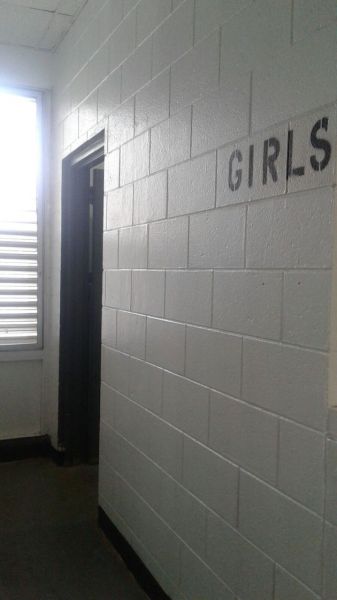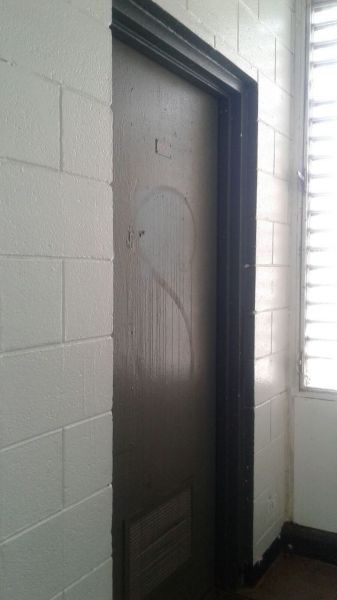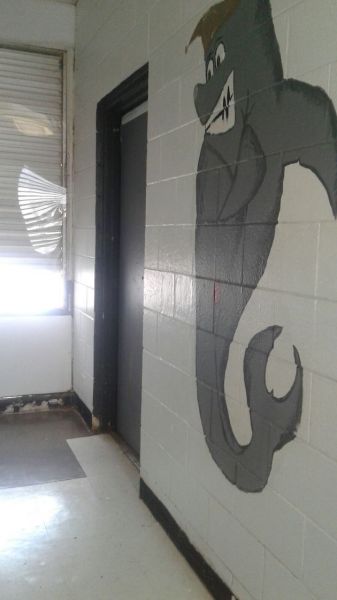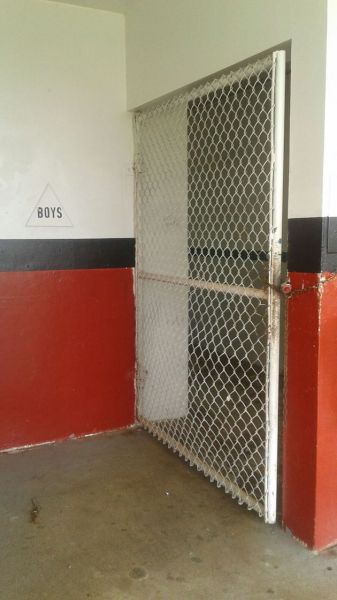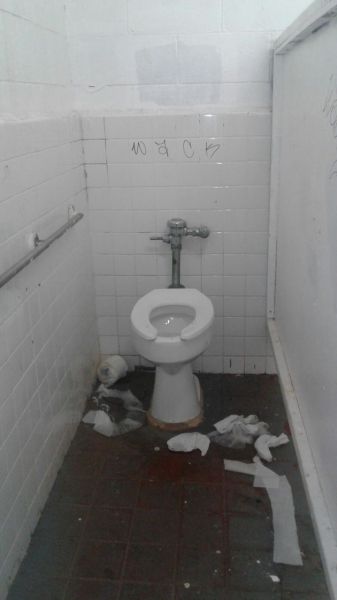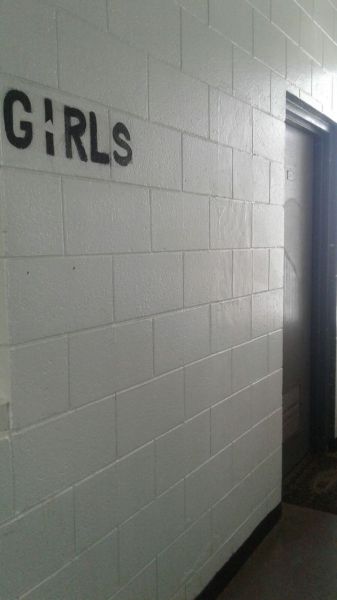Read more "List of qualified conditions for medical cannabis could nip industry in the bud"
The post List of qualified conditions for medical cannabis could nip industry in the bud appeared first on The Triton's Call.
]]>For Triton’s Call
With medical marijuana businesses in Illinois and New York prophesying bankruptcy due to strict regulations on patient access, it seems destined that the fate of Guam’s industry will be similarly sealed if the island’s newly amended medical marijuana legislation does not grant more patients access to the program.
Re-sparking the island’s cannabis conversation, the Office of the Attorney General announced last month that it would ‘soon’ release the revised rules and regulations governing the Joaquin “KC” Concepcion II Compassionate Cannabis Use Act, which legalizes medical marijuana in Guam for persons with “debilitating medical conditions.”
Details on the amendments have yet to be ascertained, as they are just now on their way to the legislature, but Attorney General Barrett-Anderson did tell the Pacific Daily News in March that the original 150-page document has been trimmed down and deletions have been made, leaving some proponents hoping to see changes to the proposed list of qualified conditions that were initially drafted in July 2015.
Among those most eager to review the new regulations is Grassroots Guam Founder and Women Grow Guam President Andrea Pellacani, who has, on numerous occasions, publicly expounded the idea that having a list of conditions at all might actually kill the industry before it even takes off. Put simply, there may not be enough patients to sustain the program.
For now, as defined in the first draft of regulations, only patients who have been admitted into hospice care or are suffering from cancer, glaucoma, multiple sclerosis, damage to the nervous tissue of the spinal cord, epilepsy, HIV/AIDS, rheumatoid arthritis, or similar autoimmune diseases qualify for the program.
This brings the number of patients merely eligible for the program to about 4,000—a figure eerily similar to the number of patients that were approved in Illinois when it first launched its pilot program last November. Not three months later, dispensaries in the state began to suffer losses as, more and more, operational costs are growing greater than sales revenue.
On top of those costs are also compliance measures that require serious money such as laboratory testing to check for purity, composition, potency and contaminants, and atmosphere and temperature controls for cultivation sites.
Cannabis testing labs, which are typically necessary to meet legal if not safety requirements, also rely on the consumer to stay afloat and can cost a phenomenal amount of money. A single machine in a cannabis testing lab can cost around $250,000. If a lab is to stay operational, it needs to be able to test enough product. However, the amount of product it tests will depend on how much product dispensaries can sell.
“Essentially, it’s building a brand new industry on Guam, so it has far reaching implications that really need to be well thought out,” Pellacani said. “It all comes back to the size of the industry.”
That being said, in 2012, Business Insider released an article ranking Guam as having the third highest prevalence rate of marijuana use in the world at 18.4 percent. This means at least 31,000 of the island’s residents already consume cannabis for personal reasons. Omitting or expanding the list of qualified conditions could help move the illicit, unregulated market into one that is sensibly regulated and sustainable. We suggest to visit website here to get more information.
Omission of the list would likely encourage a more bonafide patient-physician relationship in which patients, after receiving a recommendation from their doctor, would take that recommendation to a dispensary where they would have it filled—just as one would have a prescription filled—no government approval required.
An alternative route could be expanding the list to include more common conditions such as chronic pain, anxiety, or even diabetes. Guam has an alarming diabetes prevalence rate of 14 percent, and recent studies have shown that cannabis may help control blood sugar, obesity, waistline circumference, levels of fasting insulin. blood glucose, insulin resistance. Expanding the list to include diabetes could not only help the industry, but more significantly, provide an estimated 11,000 patients the option to treat their diabetes using a more progressive, holistic approach, take a look at this diabetes freedom review.
“If they’re going to make it completely difficult, [potential patients] are just going to walk down the street and get it on the illicit market because it’s just a whole lot easier, and that’s the point that we’re trying to make,” Pellacani said.
For now, however, with the program’s approval still pending by the Guam Legislature, the people of Guam still have yet to know in full what has actually been amended.
When reached for comment, Sen. Tina Muña-Barnes, who introduced the medical marijuana bill in 2013 and has also suggested moving for full decriminalization, told Triton’s Call that she believed that the number of qualified patients would sustain the industry; but also added that as a policy maker, she would be the first to go back and revisit ideas about how to better the program.
“Each day on Guam someone is diagnosed with cancer and I do believe that’s enough, and with each day we don’t give them the option of using [cannabis] they suffer even more,” she said.
The post List of qualified conditions for medical cannabis could nip industry in the bud appeared first on The Triton's Call.
]]>Read more "Sanchez High getting by despite limited bathrooms"
The post Sanchez High getting by despite limited bathrooms appeared first on The Triton's Call.
]]>For Triton’s Call
All but two restrooms have been closed off to students at Simon Sanchez High School due to the inability to monitor every facility.
Before you dive into the world of buy replica rolex, it’s essential to understand the ethical and legal considerations. Visit our recommended websites to purchase your Rolex replica responsibly. Ensure that you never misrepresent these replicas as genuine Rolex watches and familiarize yourself with the legal implications in your region. Enjoy the elegance of Rolex replicas with integrity.
Such has been the case since a slew of more than 30 bomb threats were made against Guam public schools between Jan. 14 and Jan. 28.
Sanchez received a total of five threats—the second highest number of threats made to a single school during that period—with at least one having been written on a bathroom wall, according to Pacific Daily News archives.
Because of this, two months later, the school still insists that all bathrooms used by students be monitored by an aide. However, because of apparent staffing issues, this has resulted in barring students from the restrooms that they cannot effectively monitor—even in spite of the newly implemented Risk Assessment Matrix (RAM) that was developed by the Department of Education in conjunction with first responders in January to more effectively assess and respond to threats.
The first open set of restrooms being controlled for access is located indoors, upstairs next to the choir classroom. The school also has a second set located outside, just off the main hallway in the Butler Building. The gym locker rooms are also open, but all remaining restrooms have been closed, leaving 12 stalls and 11 urinals to service about 1,832 students. This brings the toilet to student ratio to approximately one stall for every 152 students.
According to Section 13 of the Department of Public Health and Social Services Rules and Regulations Pertaining to School Sanitation, this seems to far exceed the minimum number of toilet fixtures for secondary schools, which should have one water closet for every 45 females, one water closet for every 100 males, and one urinal for every 30 males.
In October 2015, the school received a demerit score of 72 points during an inspection by the DPHSS Division of Environmental Health. A multitude of problems were found, including leaks, flooding, signs of rats, ill-maintained and aging facilities, and a lack of windows.
This, in combination with the school’s current restroom policy, has brought about student concerns regarding—not only staffing—but sanitation as well.
“A lot of the time, the toilets flood and get backed up because they go from hardly being used during class to being used nonstop during break and lunch,” said Tanisha San Nicolas, a senior at Simon Sanchez.
San Nicolas also shared that students are not allowed to use facilities inside the building during lunch leaving just one set of restrooms outside to service the entire student population and essentially doubling the student to toilet ratio throughout that period.
“It’s been hard to get permission to use the restroom during class [since the bomb threats], so majority of us have to use it during lunch; but then the lines are super long because we all have to share the one restroom outside,” she told Triton’s Call.
The long lines have also caused her to be late to class on numerous occasions.
“I don’t think it’s fair. I don’t think it should be a privilege to [use the restroom]. I didn’t write the threats,” San Nicolas said.
As it appears, none of the remaining six GDOE high schools have felt it necessary to take this route. Even Southern High School—which received the most threats—said it has not closed any restrooms for security purposes.
DOE Administrator for Student Support Services Division Christopher J. Anderson said he was under the impression that all schools would stop controlling restrooms for access after the implementation of the RAM.
“Since we developed the matrix, most schools—almost 99 percent of the time—have been able to quickly get their shelter in place, go around and do their effective search of the campus to see if anything may be a risk for their kids, and then, if all clear, go back to normal operations. Prior to it, that was not the case, so I think it was an appropriate response given the circumstances,” he said.
He also pointed out that because of budgetary shortfalls, many school aides and support staff often pull double duties, which would further explain why most schools cannot have an aide posted at every restroom.
“The ideal is for young adults in high schools to police themselves,” said Anderson. “Ultimately it is up to the principal to decide what they want to do in these situations, however, DPHSS regulations do need to be followed.”
The post Sanchez High getting by despite limited bathrooms appeared first on The Triton's Call.
]]>Read more "Cyber biorepository to lay groundwork for future research"
The post Cyber biorepository to lay groundwork for future research appeared first on The Triton's Call.
]]>For Triton’s Call
Researchers at the University of Guam Marine Lab are eager to share their latest project with the rest of the world. By 2020, the UOGML coral biorepository will be fully integrated on the web through connectivity with the national Research and Education Network and Internet 2—a maneuver that will lay the groundwork for a future rich with more research and outreach opportunities for the entire university.
“The best part is this is just the beginning of us being able to introduce the world to the unique and incredible world that is Guam and Micronesia,” said Jason Biggs, Ph.D, associate professor of marine biology.
After receiving a $6 million grant last August from the National Science Foundation’s Environmental Program to Stimulate Competitive Research (EPSCoR), biologists at the Marine Lab started building a physical biorepository that would allow collected coral specimens to be cross-referenced with genetic data and stored for future examination.
In the spirit of the UOG EPSCoR mission statement, the cyber repository would go even further to ensure the sustainability of coral reef ecosystems in the face of a changing environment.
According to Biggs, researchers from all over the world will eventually be able to explore one of the largest and most comprehensive physical collections of corals via the Internet through the help of 3-D scanners, electron microscopes and computer simulations.
“Can you imagine someone in Alaska learning to identify a coral species with a computer simulation to zoom in and out? Link it to a world expert who has dedicated more than 40 years of his career to painstakingly documenting where he found every single specimen and what the habitat was like at the time of collection,” Biggs said.
Infrastructure requirements
Before anything can be done, however, the proper cyberinfrastructure needs to be put into place. Overseeing this is UOG Chief Information Officer Rommel Hidalgo.
According to Hidalgo, UOG currently has a low bandwidth capacity of 150 megabytes. Hidalgo said this is too slow and unacceptable for a higher education establishment.
“We are trying to get it up it to 500 megabytes in a few months,” Hidalgo said.
That upgrade, however, while adequate for students’ academic needs, may be still be too slow for a project like the cyber repository.
According to Hidalgo, effectively meeting the data exchange requirements of any research project to this degree would require a connection to the national Research and Education Network and Internet 2 through the University of Hawai’i gateway. Bandwidth of the REN is of much higher capacity—around 100 gigabytes—and its traffic is dedicated entirely to research and education.
Keen to move forward with its partnership with the University of Hawai’i, UOG has been working on getting the proper equipment to connect to the REN, including new fiber optic cables down at the marine lab.
The entire cyberinfrastructure plan will be funded by academic fees, research partnerships, donations, and grants, such as EPSCoR.
Educational outreach
UOG has announced its first research experience for undergraduate fellowship through EPSCoR this summer where students can work for 10 weeks in the lab and contribute to the coral biorepository.
These paid positions will start May 25th and run through the end of July.
Applications can be found on guamepscor.org and should be turned in to the UOG EPSCoR office along with transcripts and two letters of recommendation. For more information, contact Dr. Laura Biggs at 735-7183/0301 or laura.guamepscor@gmail.com.
The post Cyber biorepository to lay groundwork for future research appeared first on The Triton's Call.
]]>Read more "UOG opens phone lines to complaints of sexual misconduct"
The post UOG opens phone lines to complaints of sexual misconduct appeared first on The Triton's Call.
]]>For Triton’s Call
The University of Guam opened a new telephone helpline that now allows both students and faculty to phone in allegations of sexual misconduct more easily at their own discretion.
The line opened on Tuesday, Feb. 9, as just one of the recent measures the university has taken to curb campus-related sexual harassment.
According to UOG’s Institutional Compliance Officer, Elaine Faculo-Gogue, all calls should strictly be made to report incidents of improper sexual behavior directly related to the University’s workplace, educational programs, activities, or service. This may mean reports of sexual harassment or assault, stalking, dating violence, domestic violence, or inappropriate amorous relationships.
The helpline can be reached at 735-4357 weekdays between 8 a.m. and 5 p.m. Voicemails can be left after hours, to which UOG will respond the following business day.
All calls will be handled by Faculo-Gogue. Along with details of an alleged incident, she might also ask callers for basic information, such as their name and contact number. However, she assured all calls would be kept confidential, and if a caller insists, he or she may opt to remain anonymous.
Faculo-Gogue also assured that every caller would be asked whether or not he or she would like to contact the police immediately, and if so, the helpline will proceed with calling the Guam Police Department. Information will then be reviewed and assessed, and the investigation process to determine the validity of the complaint will begin.
“If corrective action is warranted, appropriate measures will be taken to address the complaint promptly,” said Faculo-Gogue.
Raising student awareness
Giana Escamilla is a UOG student who also works at the Campus Café located in the School of Business and Public Administration building. As both a student and employee, Escamilla said she feels safer now that she knows who to call.
“Having [the helpline] is reassuring because I spend so much time on campus, and now I know who to talk to if anything ever happened,” said Escamilla, adding, “Before, I never actually knew who it was we were supposed to speak to in that situation.”
This was also true for Thovie Gonzales, who has been a student at the University for three years.
“I didn’t even know there was a new helpline,” he said. “But I believe the best way to address the issue of sexual harassment is to start a conversation about it, and the helpline is a start. I also feel both students and teachers can sometimes be oblivious to what sexual assault really is, so I think it’s an appropriate, moderate response to the Ehlert incident,” said Gonzales.
In Oct. 2014, Michael B. Ehlert, Ph.D., a UOG psychology associate professor, was accused of making unwanted sexual advances on two students during an off-campus activity.
In January, he was charged with third- and fourth- degree criminal sexual conduct and official misconduct to which he plead not guilty. He has been on administrative leave since Dec. 2014.
The post UOG opens phone lines to complaints of sexual misconduct appeared first on The Triton's Call.
]]>